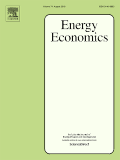
Only available in english.
Publication de l’article « Network tariff design with prosumers and electromobility: Who wins, who loses? » par Quentin Hoarau et Yannick Perez dans la revue Energy Economics.
Volume 83, September 2019, Pages 26-39
https://doi.org/10.1016/j.eneco.2019.05.009
Distributed Energy Resources (DERs), mostly in the form of solar photovoltaic (PV) or lithium-ion batteries, and electric vehicles (EVs) are emerging as three disruptive innovations in power grids. Recent studies have pointed out the potential synergies between these technologies, while others have studied the difficulty to design adequate network tariff when some consumers can adopt DERs (prosumers). In this paper, we investigate the combined effect of DERs and EVs on grid cost recovery. To study these effects, we formulate a non-cooperative game between a regulator that sets tariffs to recover grid costs and the four classes of network users depending on whether they are prosumer (resp. EV owners) or not. We study how tariff structures and the levels of EV penetration and prosuming affect tariffs. First, we find that grid cost recovery concerns caused by load-defecting prosumers installing DER can be balanced by the diffusion of EVs in the network. Second, we highlight that EVs and DERs adoptions are conflicting through the network tariff design. In particular, we find that the more a tariff structure gives incentives for DERs, the less beneficial it is for EVs.
